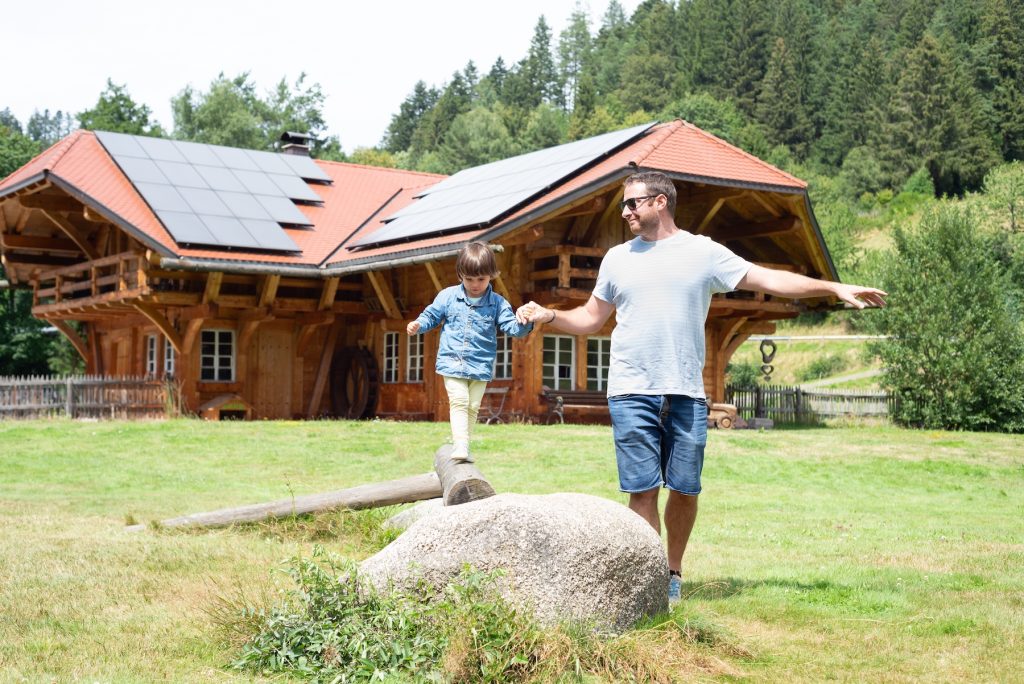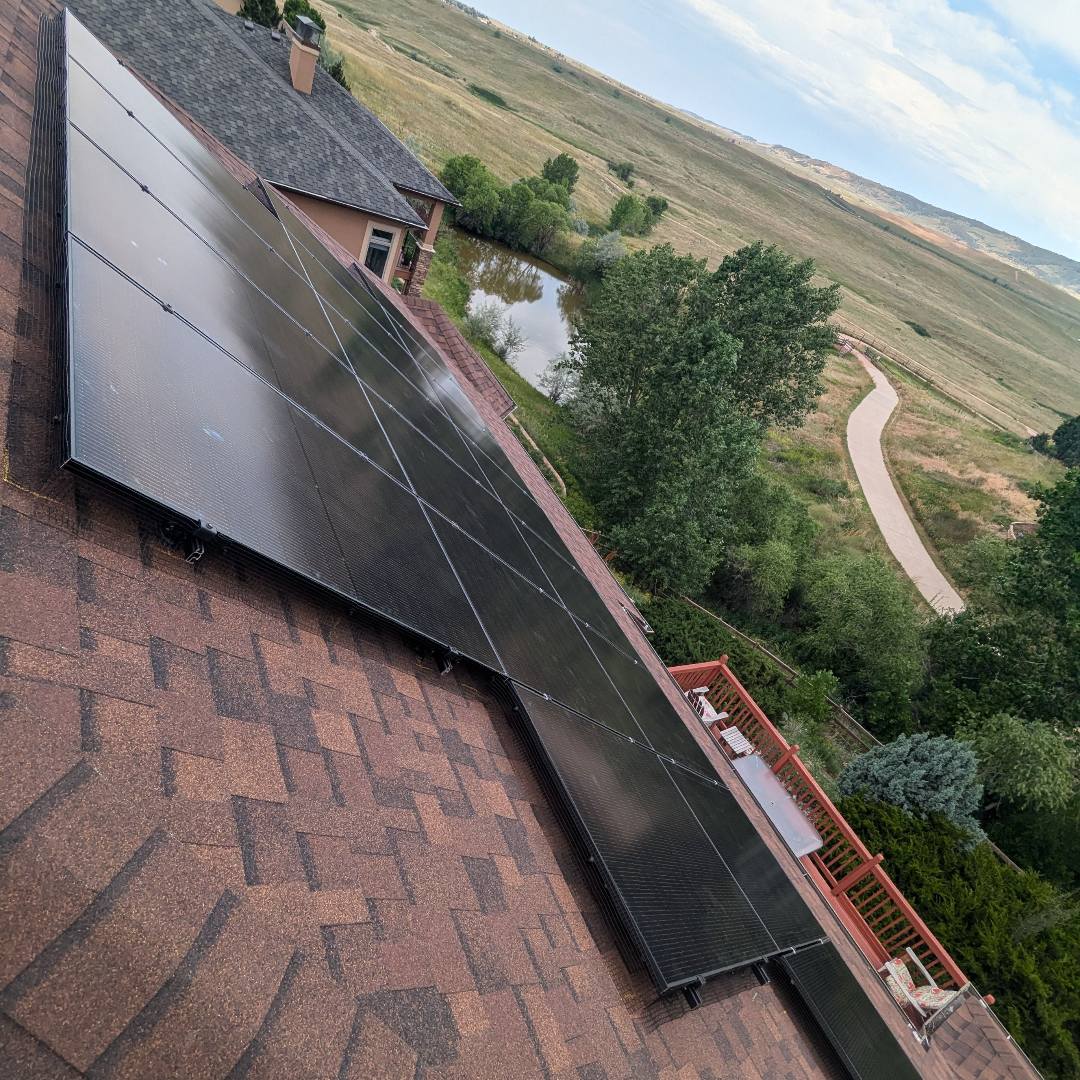
Introducing Tesla Powerwall 3: Specs, Benefits & More
Get the most powerful home backup power with the Tesla Powerwall 3. Solar Power Pros is a Tesla Powerwall Certified Installer in Colorado. Reach out today for your free quote!

Installing home solar panels is a smart but big decision. Before you take the plunge, it’s important to learn as much as you can about solar panel installation. Getting the facts before you go solar will set you up for a successful home solar installation.
Solar Power Pros is the leading local solar installer in Denver, CO. We created this guide to share our knowledge and experience in Colorado solar panel installation so you can prepare for your project.
Before we get into the details, let’s cover some basics.
Solar panels work by capturing energy from the sun and converting it into electricity. They make use of a phenomenon known as the photovoltaic (PV) effect to do so, which is why you often see solar panels referred to as PV panels.
Here’s a step-by-step overview of how solar panels work:
There are three main types of solar energy systems: grid-tied, grid-tied with battery backup, and off-grid. There are pros and cons to each, but we recommend grid-tied solar with battery backup for most homes in Colorado. It provides the greatest number of benefits at the best value.
There are a few factors that must be considered before you can install solar panels for your home.
The first step is to calculate your current electricity usage and consider future needs for upgrades you may be considering, like an EV charger or heat pump installation. You can calculate your current usage by evaluating your past electric bills. If that sounds like too much work, just give Solar Power Pros a call! We will provide an in-depth analysis of your electric bills as part of your free consultation.
It’s important to have your roof evaluated by a solar professional before installing solar panels. Not only will this ensure your system maximizes available space and sunlight, but it will also ensure your roof is strong enough to support the solar panels.
Home solar panel installations must comply with local building codes and you will need a permit before you can install solar panels in Colorado. Solar Power Pros will handle this entire process for you so you don’t have to deal with any red tape.
Solar panel installation is a straightforward process as long as you have an experienced solar installer. Solar Power Pros follows a carefully structured process that we designed to make solar installation as easy as possible for homeowners while ensuring quality and compliance with regulations.
Solar panels are an investment that puts money back in your pocket. They save you so much money on your electric bills that, in a few years, they’ll pay for themselves. But as they say, you have to spend money to make money. Thankfully, you have plenty of financing options for your solar panel installation, and solar panels are eligible for tax incentives, too.
The only way to truly benefit from solar panels is to own them. Leasing solar panels is an option, but leasing solar panels simply transfers power from your utility company to a leasing company. To reap the full benefits of solar panels, you need to own them. There are two paths toward solar ownership:
Colorado homeowners have access to several solar incentives in 2024.
Solar panels free you from your utility company and put you in control of your own power! They also significantly reduce your fossil fuel consumption and have a direct impact on climate change.
If you’re ready to join the thousands of Colorado homeowners who are already benefiting from solar panels, call Solar Power Pros. We offer a virtual, no-pressure solar consultation at no cost to help you decide whether solar panels are worth it for your home. We install solar panels in Denver and throughout Colorado.

Get the most powerful home backup power with the Tesla Powerwall 3. Solar Power Pros is a Tesla Powerwall Certified Installer in Colorado. Reach out today for your free quote!

A professional evaluation is the best way to find out whether your house is good for solar panels. Schedule your free, no-pressure evaluation today with Solar Power Pros—the leading local solar installer on the Front Range.